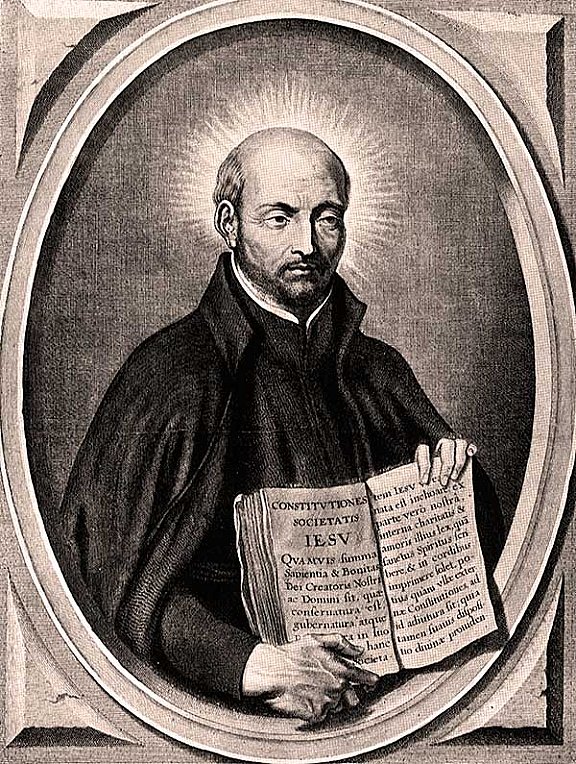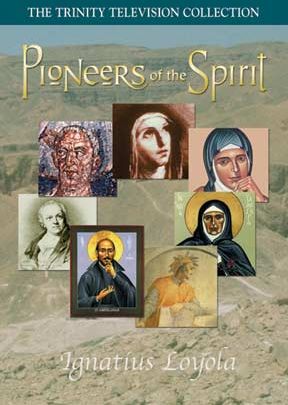LOYOLA'S VISION FOR THE JESUITS REVIVED CATHOLICISM

Ignatius Loyola, founder of the Jesuits
IN 1922, Pope Pius XI declared Iñigo “Ignatius” Loyola the patron saint of all spiritual retreats. This was largely because of the Spiritual Exercises which Loyola had developed in the sixteenth century. The Exercises were a systematic series of prayerful reflections focused on Christ.
As a young man, Basque-born Loyola was a courtier and soldier. In 1521, the twenty-nine year old Loyola was in command of a Spanish citadel when a French cannonball struck him in the legs, ending his military career. While recovering from operations to break and reset his right leg and to saw off a protruding bone, he asked for works of fiction to divert himself. None were available, so he settled for a life of Christ and a collection of the lives of saints. He began to envision himself in the role of a spiritual hero.
He found that after he daydreamed about worldly pleasures, he felt depressed and dry, but when he contemplated fasts and penances, he was uplifted. And so, while the Protestant reformers were rejecting fasts, pilgrimages, self-flagellation, and other austerities as the means to find God, Loyola embraced all these methods. He wanted to do something great for God’s glory. Shortly after adopting his plan to imitate the saints, he had a vision of Mary with the baby Jesus.
By degrees he overcame scruples and even a temptation to kill himself, calling on God for relief from his thoughts. On one occasion, relief came only after he had fasted from food and drink for a week of prayer. His autobiography tells that another time, when he was sick, it came to his mind that he was already justified before God. Calling to mind his sins, he tried to combat the thought (which he considered heretical), but could not overcome it, and this struggle to overcome "temptation" caused him much more suffering than the fever. In 1523, he begged his way to Jerusalem, returning to Spain the following year. He had many more visions of Christ, Mary, and the Trinity.
After his return from the Holy Land, Loyola entered school to fill gaps in his education and to prepare for the priesthood. Meanwhile, he taught others using his Spiritual Exercises.
Because of the Reformation spreading throughout Europe, Catholic authorities regarded any new teaching with suspicion. Consequently, Loyola was often questioned by the Inquisition and religious leaders. He was even imprisoned twice. Always he affirmed his Catholic orthodoxy. Despite opposition, he persisted in preaching and teaching until, in Salmanaca, he was ordered to teach no more until he became a priest. He did not say his first Mass until almost a dozen years later, in 1538.
During 1534, he and several friends had organized themselves into a fraternity for doing good. In 1540, they sought papal recognition as an order of the church. Pope Paul III approved the Society of Jesus (the Jesuits) but was reluctant to grant it much power because its members considered themselves soldiers of Christ to go where needed, and were not bound to convents, set times of prayer, priestly garb, or the austerities that had dominated Loyola’s early efforts to please God. Therefore the pope limited the Jesuits to sixty members. However, they soon proved so useful in the Catholic Counter-Reformation as diplomats, missionaries, educators, preachers, agitators, and martyrs, that the restriction was lifted. By Loyola’s death in 1556, there were already a thousand Jesuits.
Loyola spent his last years overseeing the fast-growing society and directing its energies worldwide. Over the years, he wrote its Constitutions (guides for daily operations). Pope Paul V beatified Loyola in 1609, and on this day, 12 March 1622, Pope Gregory XV declared him a saint.
—Dan Graves
----- ----- -----
Image credit: Portrait of St Ignatius of Loyola, half-length, turned and looking to the right, wearing robe, bearded, with halo, holding book open with both hands leaning out of the oval frame; after Quellinus. Engraving and etching © The Trustees of the British Museum [CC-BY-NC-SA-4.0]
For more background on Loyola, watch Pioneers Of The Spirit: Ignatius Loyola






